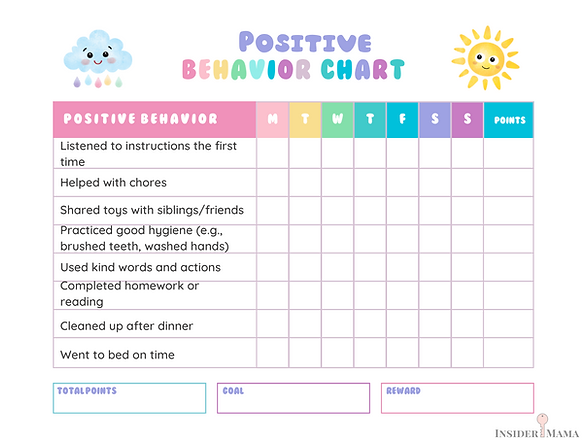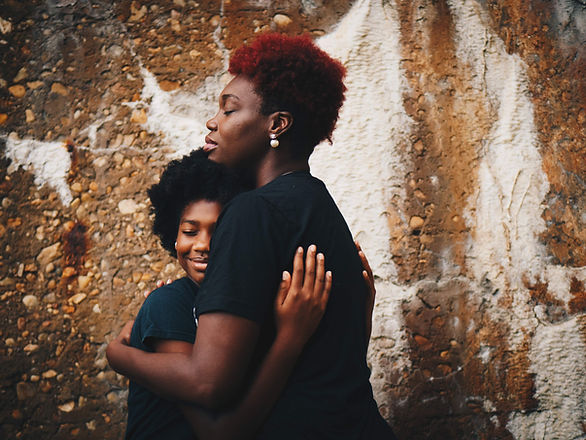As one mom to another, I know just how challenging it can be to discipline our little ones. We all want to raise well-adjusted, responsible children, but the journey there can sometimes be fraught with moments of doubt and fear. No one likes the idea of punishing their children, and fortunately, we don’t have to! Today, I’m sharing some effective, punishment-free strategies I’ve used with my own kiddos that have made all the difference to parent without punishment.

15 Effective Ways to Parent Without Punishment
1. Open Communication is Key
Your child, no matter how small, is a person with thoughts, feelings, and emotions. When they act out or misbehave, it’s often because they’re trying to communicate something. Before jumping to conclusions or getting frustrated:
- Empathize: Put yourself in their shoes. If they’ve had a long day or missed a nap, they might be more prone to tantrums or mood swings. Be patient and understanding.
- Talk It Out: Ask open-ended questions. “Why did you feel like doing that?” can often lead to insights and open avenues of discussion.
- Validate Their Feelings: Being sad, angry, or frustrated is okay. Instructing children to identify and name their feelings will enable them to better control their responses to situations.
2. Set Clear Boundaries
Setting clear and consistent boundaries is essential for children. It gives children a feeling of security as well as the ability to comprehend what is required of them.
- Be Consistent: If bedtime is at 8 PM, try to stick to that regularly. If you say no snacks before dinner, hold your ground.
- Involve Them: When age-appropriate, involve them in rulemaking. When they feel a part of the process, they’re more likely to respect the boundaries.
3. Positive Reinforcement When Parenting Without Punishment
Celebrate the good! Positive reinforcement can be much more effective than focusing on the negatives.
- Verbal Praises: Simple words of encouragement can go a long way. “I’m proud of you,” “You did a great job,” or “Thank you for listening” can boost their self-esteem.
- Reward Charts: These can be fun! Every time they complete a chore, behave well, or practice positive behavior, they get a sticker. Collect enough, and maybe there’s a fun activity or treat at the end. I’ve even created a Positive Behavior Chart that you can download and use.

4. Time-Ins Instead of Time-Outs
Instead of isolating our children when they’re overwhelmed, try:
- Sitting With Them: Let them know you’re there, and they’re safe. Sometimes, they just need a moment to calm down; your presence can make a difference.
- Take Some Deep Breaths Together: Show them how to master the technique of taking deep breaths. It has the potential to completely transform how one handles their feelings.
5. Natural Consequences
There will be moments when we have to take a back seat and let our children deal with the natural repercussions of their behavior on their own. If they forget their lunch, they might be hungry. They’ll likely remember it next time.
6. Distraction and Redirection
Especially effective for toddlers:
- Divert Attention: If they’re about to throw a toy, quickly divert their attention to something else. “Look at that bird outside!”
- Provide Alternatives: If they’re playing with something they shouldn’t offer them an alternative. Swap out the fragile vase for a plush toy.
7. Model Behavior
Children are little sponges. They are receptive to everything, including our responses to them. Set an example of patience, kindness, and proper conduct. Keep in mind that they are constantly observing and learning from us.
8. Quality Time
Spend quality time with your children:
- Play Together: Board games, puzzles, or simply playing pretend can strengthen your bond.
- Read Together: Nightly storytimes can be a cherished routine that also subtly instills discipline.
9. Teach Problem-Solving Skills
Equip your children with the tools to navigate challenges:
- Ask Guiding Questions: Ask them questions that lead them in the direction of the solutions themselves rather than trying to solve their problems for them.
- Role Play: Act out scenarios and let them figure out how to respond.
10. Offer Choices When Parenting Without Punishment
When they have choices, they feel empowered:
- Limited Options: Instead of demanding they wear a particular shirt, offer two choices. “The blue shirt or the red one?”
- Involve Them in Decisions: “Should we have carrots or broccoli with dinner?”

11. Understand Developmental Stages
- Knowing your child’s development helps you with each age’s problems.
- Teething, Growth Spurts, and Changes: Babies and toddlers often act out due to physical discomfort. Recognizing these signs can help you address the root cause of their discomfort instead of viewing it as misbehavior.
- Independence Seeking: As your child grows, they’ll test boundaries to seek independence. Understand it’s a natural part of growth and guides them through it.
12. Establish Routines
Routines give children a sense of security and predictability:
- Consistent Bedtimes: This not only ensures they get enough sleep but also helps prevent overtired tantrums.
- Regular Mealtimes: A well-fed child is usually a happy child. Regular meals and healthy snacks can prevent mood swings related to hunger.
13. Connect Before You Correct
Before you jump into correcting behavior:
- Eye Level: Get down to their eye level. This non-threatening stance makes them more receptive.
- Touch: A gentle hand on their shoulder can make all the difference in getting their attention and conveying love.
14. Seek Outside Support
Never hesitate to ask for support:
- Parenting Groups: Joining a local or online parenting group can provide solace, shared experiences, and advice.
- Books and Resources: There are so many wonderful parenting books out there. They offer valuable insights and strategies.
15. Reflect on Your Behavior
Often, our children’s behavior mirrors our own:
- Stay Calm: Remember, if you escalate, so will they. Breathe, count to ten, and respond calmly.
- Self-care: Ensure you’re taking time for yourself. A relaxed and recharged parent is better equipped to handle challenges.
Parenting without punishment is really all about the love and connection you share with your kid. It’s more about guiding them with kindness rather than controlling them with fear.
If you are looking for a little more supplemental reading I’ve heard great things about ‘Parenting: Positive Parenting – Stop Yelling And Love Me More, Please Mom‘. It’s said to offer insightful tips on nurturing understanding and patience with our kids. Many moms have found positive parenting to be more attainable after trying it.



